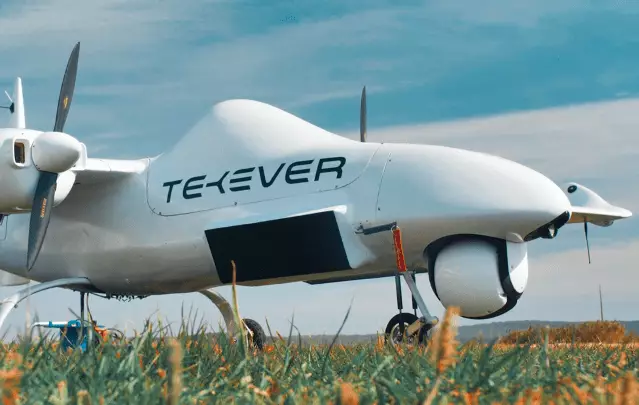The emergence of dual-use drone technology is reshaping the defense landscape, with startups like Tekever leading the charge. Recently, the Portuguese-based company secured €70 million (approximately $74 million) to bolster its product development and extend its reach, particularly in the highly competitive U.S. market. This capital injection aligns with a larger trend wherein agile tech firms are encroaching upon realms traditionally dominated by established defense giants. Notably, the rapid technological advancement in drone systems is increasingly being spurred by the ongoing conflict in Ukraine, highlighting an urgent need for innovation in the sector.
The funding round for Tekever was spearheaded by Baillie Gifford & Co., a Scottish investment firm with a notable track record that includes backing firms like SpaceX. Additionally, the NATO Innovation Fund, a significant €1 billion initiative launched in 2023, has also invested in the startup. The fund aims to support innovative solutions in defense and security, focusing on technologies that can operate effectively in both military and civilian realms.
This strategic alignment suggests that Tekever is not just receiving funding, but is also being integrated into a broader ecosystem of defense innovation, which recognizes the value of startups in bringing fresh perspectives to age-old bureaucratic processes in the defense sector.
At the heart of Tekever’s success is its commitment to developing advanced surveillance drones. Among its flagship products is the ARX drone, which can orchestrate a fleet of smaller unmanned aerial vehicles for extensive monitoring tasks across various terrains, including land and maritime environments. This sophisticated drone technology exemplifies how unmanned systems are evolving beyond conventional roles to fulfill complex operational requirements, from countering illicit activities like migrant smuggling in the English Channel to vital reconnaissance missions in conflict zones.
Contrast this with traditional aerospace companies that often compartmentalize their operations; Tekever employs a holistic, vertically-integrated approach. This model allows the firm to maintain control over every aspect of drone production, including airframe design, avionics, software, and data analytics, thereby enabling rapid responses to client requirements and fluctuating tactical scenarios.
Despite the growing momentum, Tekever’s CEO, Ricardo Mendes, emphasized a pressing concern regarding Europe’s technological progress in the defense sector. He voiced the necessity for European nations to cultivate more robust defense mechanisms, especially taking into account the proximity of the war in Ukraine. Mendes argues that Europe is lagging behind in technological advancements, and without decisive action, it could jeopardize its security and defense strategies.
The extensive applications of drone technology, particularly in a live conflict setting like Ukraine, expose both opportunities and vulnerabilities. The influx of investment and innovation in drone technology from small startups poses a potential threat to existing defense prime contractors to innovate or risk being overshadowed.
As Tekever embarks on this new phase of growth, it is essential to recognize the dual-use nature of its technology. The versatility of drones allows for myriad applications beyond military uses, particularly in government and commercial sectors. The partnership with the European Maritime Safety Agency and the UK’s Home Office illustrates this trend. By harnessing drone tech for infrastructure monitoring, disaster response, and public safety, Tekever is effectively straddling both markets, ensuring its relevance in an increasingly interconnected world.
In closing, Tekever’s story is emblematic of a shift in the defense landscape, driven by innovative tech startups that leverage advanced drone capabilities in addressing complex challenges. The significant investments and strategic partnerships underscore the potential of this young company to become a key player in reshaping the future of aerial surveillance and defense technology. As the drone market matures, it is likely that Tekever will not only contribute to enhancing military capabilities but will also play a pivotal role in transforming how we approach security in civilian contexts, marking the dawn of a new era in dual-use technology.

